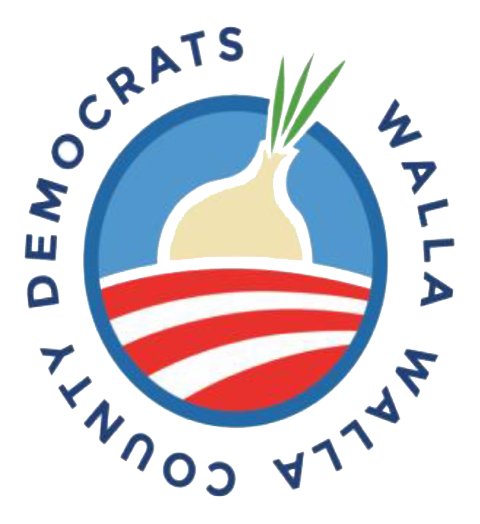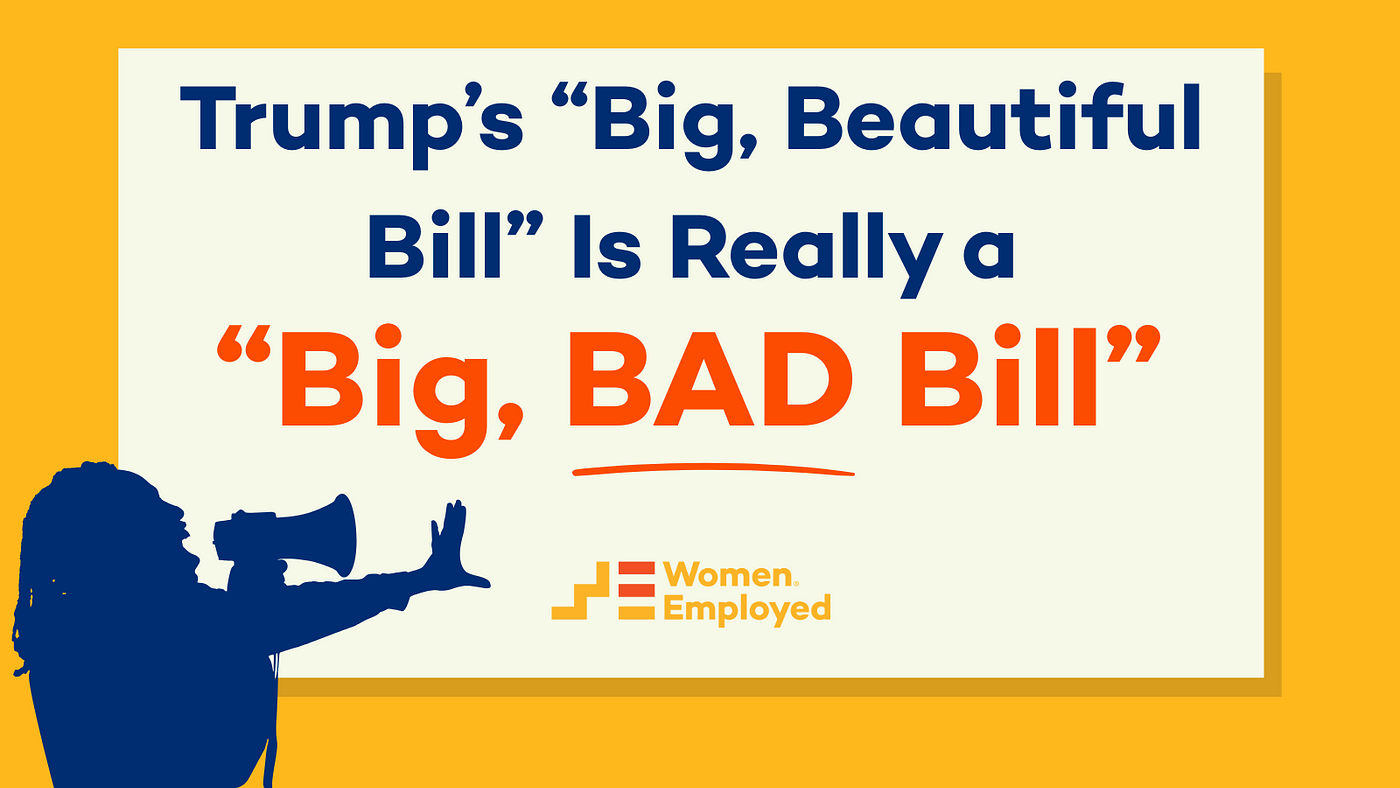The One Big Bad Bill Explained
The “One Big Beautiful Bill Act” presents significant concerns from a Democratic perspective, particularly in terms of its impact on vulnerable communities, healthcare equity, and the sustainability of public safety net programs.
This poses significant threats to the well-being of working families, the elderly, and marginalized communities. It systematically weakens our social safety nets, places undue burdens on those seeking assistance, and jeopardizes the financial stability of crucial healthcare providers, particularly our local hospitals.
While offering some temporary tax deductions, these will likely shift costs or incentives in ways that do not genuinely benefit workers in the long run.
By understanding the nuances of this legislation, we can effectively articulate its impact and continue to champion policies that uplift all members of our community, reflecting our core values of compassion, equality, and opportunity.
A summary of the bill, now a law, is provided below.
Christopher Kelly, Chair, Data Technology Committee
The "One Big Beautiful Bill Act": A Summary for Local Democratic Party Members
This summary outlines the key provisions and potential impacts of the "One Big Beautiful Bill Act," focusing on how it aligns with or diverges from core Democratic values. Understanding this legislation is crucial for our discussions and advocacy within the community.
Undermining Our Social Safety Net and Healthcare Access
The "One Big Beautiful Bill Act" represents a significant shift in federal policy, proposing sweeping changes to critical social safety net programs and our tax system. From a Democratic perspective, many of these changes raise serious concerns about their impact on vulnerable populations, healthcare access, and economic fairness.
I. Attacks on Vital Assistance Programs: Medicaid and SNAP
The bill introduces substantial restrictions and funding cuts to programs that millions of Americans rely on for basic necessities and healthcare.
• Medicaid Cuts and Restrictions:
o Massive Funding Reductions: The bill slashes federal Medicaid and Children's Health Insurance Program (CHIP) spending by over $1 trillion. This will inevitably force states to either drastically cut benefits, reduce eligibility, or significantly increase their own contributions, which many state budgets cannot sustain.
o New Work Requirements: It imposes stricter work requirements on able-bodied adults and mandates more frequent eligibility checks. While appearing to encourage work, such requirements often lead to eligible individuals losing coverage due to administrative hurdles, not a lack of effort. Individuals struggling with unstable jobs,caregiving responsibilities, or fluctuating health conditions will find it exceptionally difficult to comply.
o Increased Costs for Low-Income Patients: States may be compelled to charge low-income Medicaid enrollees (100-138% FPL) up to $35 per healthcare service, capped at 5% of their income. While a cap exists, even small co-pays can be a significant barrier for families living paycheck to paycheck, leading to delayed or forgone essential care.
o Targeting Reproductive Healthcare: The bill explicitly prohibits clinics that provide abortion care, like Planned Parenthood, from receiving Medicaid funds for any other service for a year. This is a direct attack on healthcare access, particularly for low-income women who rely on these clinics for critical services like cancer screenings, contraception, and maternal care.
o Limits on Immigrant Coverage: New restrictions are placed on Medicaid coverage for legally present immigrants, further limiting access for families already navigating complex systems.
• SNAP (Food Assistance) Intensifies Hardship:
o Expanded and Stricter Work Requirements: The bill extends work requirements to older adults (55-64) and parents of children over age 6, while eliminating exemptions for veterans, homeless individuals, and former foster youth. This punitive approach fails to recognize the realities of poverty, irregular work schedules, and the diverse challenges faced by individuals seeking to put food on the table.
o State Financial Penalties: For the first time, states could be forced to pay 5-25% of food benefit costs if their payment error rates exceed 6%. This creates a strong incentive for states to cut benefits or tighten eligibility rules to avoid financial penalties, potentially starving out eligible families.
o Restricted Benefit Growth: The bill restricts future updates to the Thrifty Food Plan, which determines SNAPbenefit amounts.11 This means benefits will likely not keep pace with the true cost of food, further eroding theprogram's ability to combat food insecurity.
o Reduced Utility Deductions: Changes in calculating utility expenses may lead to approximately 600,000 low-income households receiving reduced monthly SNAP benefits.
II. The Burden of Bureaucracy: "Paperwork Penalties"
A critical, often overlooked, consequence of these changes is the massive increase in administrative burden, or "paperwork penalties," placed on applicants and recipients:
• Medicaid's Red Tape Nightmare: More frequent eligibility redeterminations mean constant paperwork, proving income, residency, and other factors. For many, especially those with unstable housing, limited digital access, or fluctuating incomes, navigating these processes is a major challenge. The new work requirements demand continuous documentation of hours or exemption status, creating a bureaucratic labyrinth that often leads to eligible individuals losing coverage due to procedural errors, not actual ineligibility.
• SNAP's Administrative Hurdles: The expanded work requirements mean more individuals will be forced to track and submit detailed work logs or exemption proofs, often for jobs with irregular hours. States, facing reduced administrative funding, may struggle to process this influx of paperwork, leading to delays and wrongful denials.
III. Devastating Impact on Healthcare Access and Our Local Hospitals
The collective impact of Medicaid cuts and increased administrative burdens is particularly severe for small regional hospitals, many of which serve as cornerstones in marginalized and rural communities:
• Soaring Uncompensated Care: As millions lose Medicaid coverage, they don't stop needing care. They often defer treatment until conditions become critical, then seek care in emergency rooms. This care becomes"uncompensated," crippling hospital finances.
• Financial Strain and Closures: Small regional and rural hospitals operate on razor-thin margins and depend heavily on Medicaid reimbursements. A significant rise in uncompensated care, coupled with federal funding cuts to Medicare, directly threatens their financial viability, accelerating the alarming trend of hospital closures, especially in rural areas.
• Healthcare Deserts and Health Disparities: When a local hospital closes, entire communities, particularly marginalized ones, are left without access to essential services like emergency care, maternity wards, and mental health services. This exacerbates existing health disparities, forcing residents to travel vast distances for care, a prohibitive barrier for those without reliable transportation or time off work.
• Worsening Community Health: Delayed and forgone care leads to sicker populations, an increase in preventable diseases, and higher mortality rates. Our vision for healthy communities is undermined when basic healthcare access is dismantled.
Tax Loopholes and Undermining Worker Wages
While proponents tout certain tax provisions as beneficial to workers, a closer look reveals potential pitfalls that could ultimately undermine employee pay and benefit employers, while offering temporary, limited relief for some seniors.
IV. "Tax-Free Tips" and "No Tax on Overtime": A Closer Look
The bill introduces temporary tax deductions for tip income and overtime pay, marketed as a boost for working Americans.However, these provisions raise significant concerns:
• "No Tax on Tips" (Up to $25,000 annually, 2025-2028):
o Employer Incentive to Suppress Base Wages: If workers' take-home pay increases due to tax-free tips, employers in industries relying on gratuities (where tipped workers often earn a sub-minimum wage) may feel less pressure to raise base wages. They could effectively pass the cost of compensation onto customers throughtips, while reducing their own payroll obligations. This could undermine efforts to achieve a living minimum wage forall workers.
o Inequity Among Workers: This provision creates an unfair advantage for tipped workers over non- tippedlow-wage workers who earn similar incomes but do not qualify for the deduction.
o Impact on Tax Credits: For very low-income tipped workers who already pay minimal federal income tax,making tips non-taxable could reduce their eligibility for or the value of crucial tax credits like the Earned Income TaxCredit (EITC) and Child Tax Credit (CTC), potentially leading to a net financial loss.
• "No Tax on Overtime" (Premium portion deductible, up to $12,500/$25,000 annually, 2025-2028):
o Encouraging Excessive Hours: Overtime pay is designed to disincentivize employers from overworking theirstaff by making longer hours more costly. By making overtime tax-free for employees, it could “inadvertently”encourage employers to schedule more overtime for existing staff rather than hiring new employees, potentially leading to worker burnout and fewer job opportunities.
o Employer Cost Reduction: Employers might convert salaried workers to hourly with a lower base rate, makingup the difference with tax-deductible overtime to maintain employee take-home pay while reducing their own laborcosts.
o Limited Scope: It only applies to the "premium portion" of overtime, not the full overtime wage, and is capped, limitingits overall impact.
It's crucial to note that neither provision eliminates payroll taxes (Social Security and Medicare) on tips or overtime. The "tax-free" aspect applies only to federal income tax, and only temporarily. This distinction is vital inunderstanding the true benefit to workers versus the potential benefit to employers.
V. Retirement Taxes: A Temporary "Bonus" Deduction
The bill introduces a temporary "bonus" tax deduction of up to $6,000 for seniors aged 65 and older, applicable to all income, not just Social Security benefits.
• Limited Scope and Duration: While beneficial for eligible seniors, this deduction is capped and phases out for higher earners ($75,000 for individuals, $150,000 for couples), and is set to expire at the end of 2028. This temporary nature provides short-term relief without addressing the long-term financial security challenges faced by many retirees.
• Does Not Address Social Security Taxes: Crucially, this provision does not eliminate taxes on Social Security benefits themselves. It's a separate deduction that applies to all income, meaning it benefits seniors with various income sources, but doesn't fundamentally change how Social Security benefits are taxed for those above certain income thresholds.
Conclusion and Call to Action for Democrats
The "One Big Beautiful Bill Act," despite its appealing name, poses significant threats to the well-being of working families, the elderly, and marginalized communities. It systematically weakens our social safety nets, places undue burdens on those seeking assistance, and jeopardizes the financial stability of crucial healthcare providers, particularly our local hospitals.
While offering some temporary tax deductions, these will likely shift costs or incentives in ways that do not genuinely benefit workers in the long run.
As local Democratic Party members, it is imperative that we:
• Educate our communities: Ensure our neighbors understand the true implications of these changes beyond the headlines.
• Advocate for robust social safety nets: Champion policies that strengthen Medicaid, SNAP, and other vital programs, ensuring they serve as true lifelines, not bureaucratic hurdles.
• Support our local healthcare infrastructure: Fight for sustainable funding models for our hospitals and clinics, especially those serving our most vulnerable populations.
• Demand genuine worker protections: Advocate for policies that truly empower workers with fair wages and benefits, rather than tax deductions that employers could exploit.
By understanding the nuances of this legislation, we can effectively articulate its impact and continue to champion policies that uplift all members of our community, reflecting our core values of compassion, equality, and opportunity.

